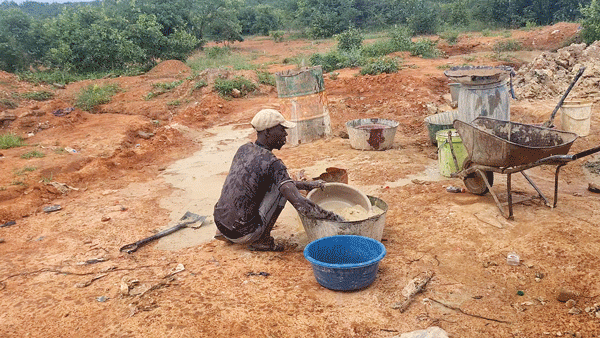
BY HARRIET CHIKANDIWA GOVERNMENT is mulling a new law to mitigate rampant land degradation and dam siltation across the country, Davis Marapira, the Lands, Agriculture, Fisheries, Water and Rural Development deputy minister said last week.
The siltation of dams has been blamed for high levels of environmental degradation, which is one of the driving forces behind the climate change crisis confronting the globe.
In a presentation to Senate last week, Marapira said the proposed Soil Act would strengthen existing laws such as the Environmental Management Act and the Mines and Minerals Act.
Senators had requested the deputy minister to explain government policy on siltation.
“The ministry is in the process of drafting a Soil Act to preserve the soil so that the country will not lose productive soils for agriculture and lose the storage capacity of dams,” Marapira told senators.
“This will strengthen the existing laws such as the Environmental Management Act, Chapter 20.27, Section 20 and Statutory Instrument No.7 of 2007.
The two legal instruments outline water and land use guidelines in terms of protecting the environment.
Marapira said in coming up with the new law, his ministry would be consulting a range of stakeholders in order to come up with a legislation that will save Zimbabwe’s dams and rivers.
- Chamisa under fire over US$120K donation
- Mavhunga puts DeMbare into Chibuku quarterfinals
- Pension funds bet on Cabora Bassa oilfields
- Councils defy govt fire tender directive
Keep Reading
“The ministry is working with other ministries such as those responsible for environment and mining in order to ensure rehabilitation of rivers and dams to make sure that these are done and also to curb mining activities which destroy the land,” he said.
“The ministry is also working with other stakeholders such as traditional leaders to curb poor farming methods and enhance soil conservation among other good farming practices,” added Marapira.
The southern African country has been suffering a severe water crisis for many years and the siltation of rivers and dams has exacerbated the situation.
In a recent report, the Famine Early Warning Systems Network warned that existing traditional water sources in many parts of the country would dry up before the next rainfall season, leading to serious problems to water and food availability.
This is largely because Zimbabwe has been hit by incessant droughts over many years.
The poor rainfall patterns over the years and siltation are proving a potent combination for a country that is largely agro-based whereby more than 70% of the population relies on agriculture.
Leading environmentalist Happison Chikova was recently quoted saying about 108 rural reservoirs had been lost to a combination of siltation and drought over the past 20 years.
In 2021, a report by Development and Co-operation (D+D) said some water bodies were facing extinction in Zimbabwe.
“In the Mwenezi district in southern Zimbabwe, 23 reservoirs formed by earth dams have been ruined by siltation. Many others are heading for extinction,” said D+D, quoting data from the Zimbabwe National Statistics Agency.
“In Beitbridge, near the South African border, at least 32 reservoirs have been damaged by siltation,” D+D added, quoting data from the Department of Agriculture Extension Services.
It also said Mazowe Dam in Mashonaland Central province was now one of the country’s most silted major water bodies due to rampant illegal gold mining activities in the area.
D+D said the Mazowe Dam was drying up and siltation sucks up much of the reservoir.
“It has a holding capacity of 35 million cubic metres, but is only 21% full,” says D+D.
In his presentation to senate, Marapira said mining activities — both legal and illegal — had become the worst threat to the existence of Zimbabwe’s rivers.
“Deforestation has also been a major factor leading to siltation in the country’s rivers and dams. Effective management of sediment in rivers has become increasingly important from a socio-economic and environmental perspective,” Marapira added.
“To curb this threat, there is need for an integrated approach with all players involved in land, water and environmental management.”
- Follow us on Twitter@NewsDayZimbabwe











